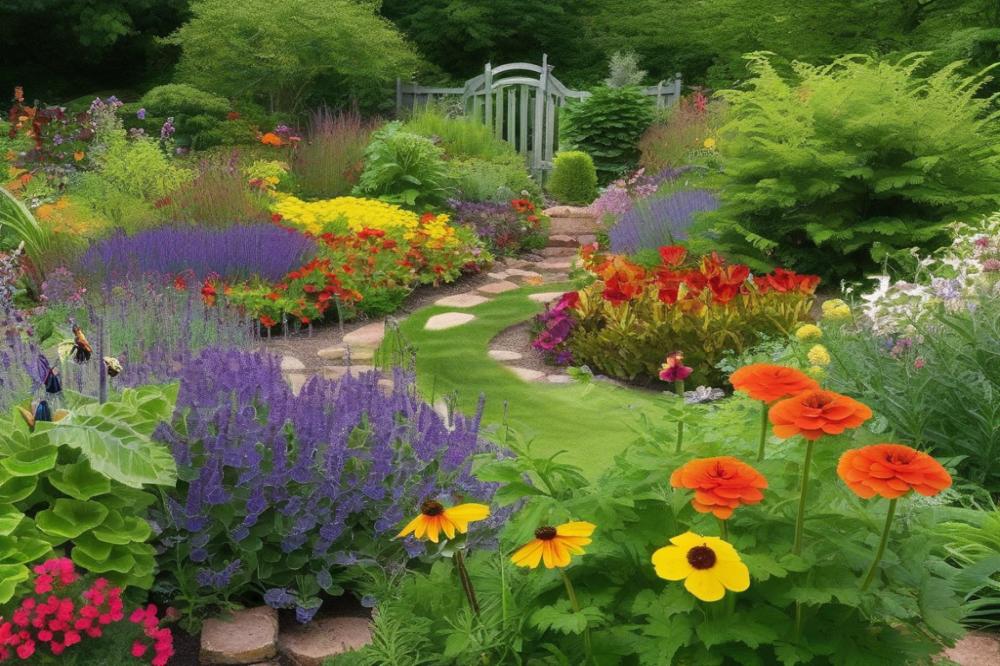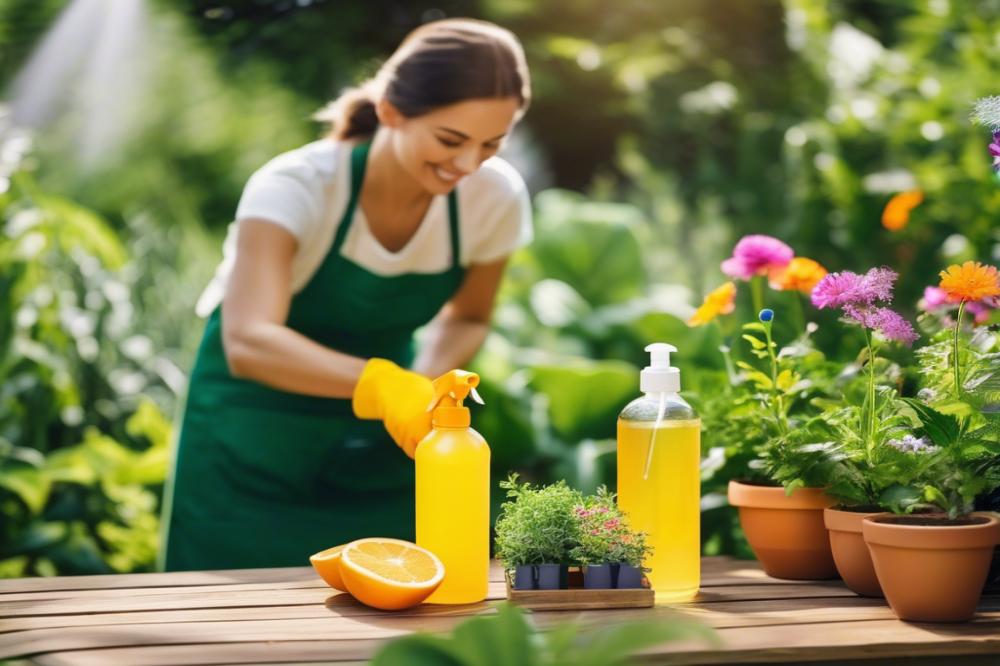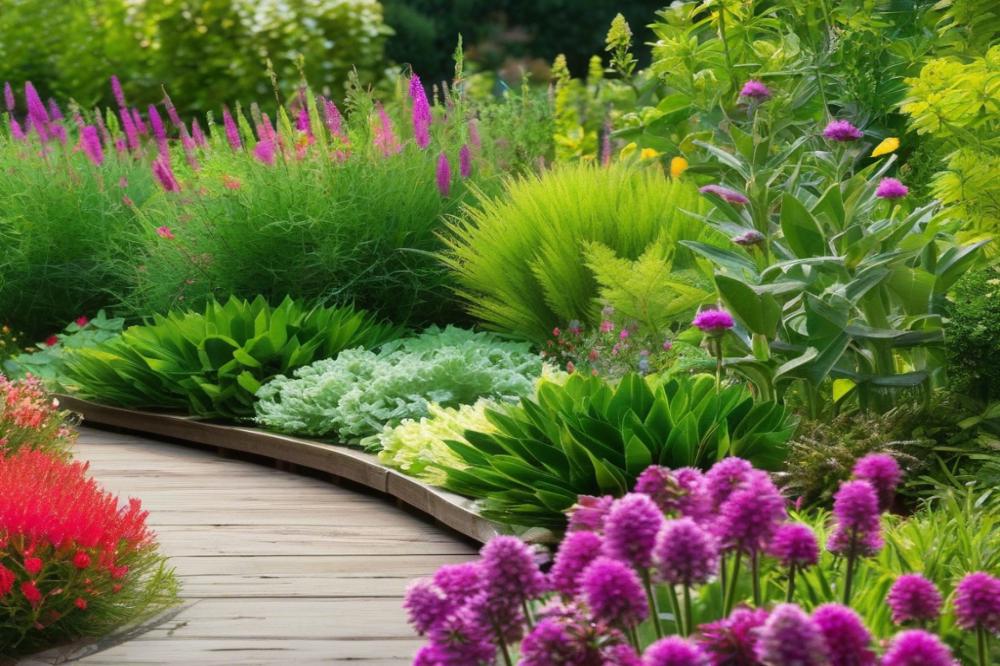Understanding organic gardening
In recent years, organic gardening has gained significant traction among both novice and experienced gardeners. Many people are seeking ways to grow plants without using harsh chemicals. Embracing natural pest control methods not only promotes healthier plants but also contributes to sustainable living. By utilizing non-toxic treatments, individuals can cultivate thriving gardens while protecting the environment and their families.
Gardeners often encounter a variety of pests that threaten their plants. This can lead to frustration and the temptation to resort to chemical pesticides. However, there are effective alternatives available, such as homemade insecticide options. Among these, a soap solution proves to be an excellent choice for those looking for an eco-friendly solution. This particular method is not only practical but also simple to execute.
Using a soap solution helps in managing common garden pests like aphids and spider mites. It penetrates the exoskeleton of insects, making it an effective option without harming beneficial creatures. Moreover, this organic remedy is easy to make, making it an accessible strategy for everyone. For novice and seasoned gardeners alike, this approach can enhance their plant care routine.
Incorporating gardening tips that focus on organic practices encourages a healthier ecosystem. It fosters resilience in plants, empowering them to resist infestations better. By adopting such methods, individuals will find joy in nurturing their gardens while being kind to the earth. The soap solution recipe is both cost-effective and straightforward. Creating it requires only a few household ingredients, ensuring that gardening remains both enjoyable and responsible.
Understanding soap spray


soap spray, often referred to as a homemade insecticide, is a simple blend of soap and water designed to help control pests in gardens. This solution works effectively by suffocating soft-bodied insects. When sprayed on pests like aphids, spider mites, and whiteflies, the soap disrupts their ability to breathe.
Many gardeners appreciate the effectiveness of this remedy. Aphids, notorious for their rapid reproduction, can be significantly reduced with a few applications of soap spray. Spider mites also fall victim as the solution clogs their fine breathing pores. Whiteflies, another common nuisance, can be targeted in the same manner. Using this method allows for control over these pests without harmful chemicals.
For those interested in sustainable living, this approach fosters a more eco-friendly garden. Non-toxic treatments provide an excellent alternative to synthetic pesticides, which can be detrimental to the environment and human health. By opting for natural pest control methods, gardeners contribute to a healthier ecosystem.
People seeking effective gardening tips often find the soap solution recipe easy to follow. Typically, a mixture of two tablespoons of liquid soap per gallon of water works well. Remember to choose a soap that doesn’t contain additives. The concentration is key; too little soap may not be effective, while too much can harm plants.
Incorporating this technique into regular plant care routines encourages a proactive approach to pest management. Regularly monitoring plants for early signs of distress can help minimize infestations. When used appropriately, soap sprays create a barrier against unwanted insects, keeping plants healthy and thriving.
Whether you’re an experienced gardener or just starting, using soap spray aligns perfectly with organic gardening practices. It supports a safe environment for beneficial insects while efficiently eliminating harmful pests. Sustainable gardening is all about balance. This method offers that balance, allowing nature to thrive while managing invasions with ease.
Making a Soap Solution Recipe


Creating a soap solution at home can be simple and rewarding. In the world of organic gardening, a homemade insecticide can serve as an effective way to combat pests. This eco-friendly solution is not only safe for plants but also wallet-friendly.
Choose the right type of soap carefully. Use a pure liquid soap that contains no added fragrances or dyes. Castile soap is often recommended due to its natural ingredients. Dish soaps can work as well, but verify that they are biodegradable. This ensures the safety of your plants while keeping pests at bay.
Next, you’ll need to gather a few materials. You will require a clean spray bottle to apply your solution easily. A mixing bowl will help you combine the ingredients effectively. Have measuring spoons handy for accurate measurements.
Once your materials are ready, it’s time to create the mixture. Begin by measuring 1 to 2 tablespoons of soap into the bowl. Then, add about a quart of water. This concentration is effective for most pests. However, for tougher infestations, consider increasing the soap amount slightly.
Mix these components thoroughly. Ensure that the soap is well-dissolved in the water. After that, pour the solution into your spray bottle. Label the bottle clearly to avoid confusion later. This labeling is especially important if you have other homemade remedies around.
Now you’re set to use this recipe for plant care. Spray it on affected plants, covering both the upper and lower leaves. This thorough application helps with natural pest control. It’s key to apply during early mornings or late afternoons to avoid burning the foliage in the sun.
For added effectiveness, consider combining the soap spray with other natural treatments. Adding a few drops of essential oils, like peppermint or rosemary, can enhance the pest management capability. These oils also provide a pleasant smell, improving your gardening experience.
Making a soap solution relies on simple ingredients found in most households. This unique home remedy reflects a commitment to sustainable living. Engaging in organic gardening can significantly benefit not only your plants but also the environment. With a few minutes of preparation, you can create a non-toxic treatment that actively supports your gardening goals.
Applying Soap Spray in the Garden


Using soap spray can be an effective method for natural pest control in your garden. It’s important to follow specific gardening tips to apply it correctly. First, timing is key. Early morning or late afternoon is often the best time to spray. Those cooler periods help reduce the chances of burning your plants.
When you decide to apply this homemade insecticide, check the weather forecast. Rain within a few hours of application can wash away your efforts. On the other hand, applying it during windy conditions might cause the solution to drift away from the target plants. Aim for calm, dry days to maximize your pest management efforts.
Before spraying, mix your soap solution as follows: Combine one to two tablespoons of liquid soap with a quart of water. This is a simple soap solution recipe that can effectively tackle many common garden pests. Make sure not to use dish soaps with additives or fragrances since these can harm your plants.
Thorough coverage is vital when applying this eco-friendly solution. Ensure every leaf and stem is coated to reach hidden pests. Pay close attention to the undersides of leaves, as many insects prefer these less visible spots. Spraying lightly is better than oversaturating, so adjust your spray nozzle accordingly.
While you aim to eliminate harmful insects, remember to protect beneficial ones. Natural predators like ladybugs and lacewings are helpful in maintaining a balanced garden ecosystem. To minimize harm, try to apply your non-toxic treatments in the evening when beneficial insects are less active.
Plant care requires vigilance. Regularly inspect your plants for signs of pests or damage. Early detection makes a significant difference. With consistent attention, you can keep your garden vibrant using these sustainable living practices.
Additional Natural Pest Control Methods


Pest management in organic gardening can go beyond just using soap spray. Several other eco-friendly solutions can significantly enhance your plant care efforts. One popular option is neem oil. This natural oil comes from the seeds of the neem tree and works well as a homemade insecticide. It disrupts the life cycle of pests, making it harder for them to thrive. Applying neem oil also provides benefits against fungal issues.
Diatomaceous earth is another effective tool. This unique substance consists of tiny fossilized algae. When spread around plants, it harms soft-bodied insects. The sharp edges of diatomaceous earth damage their exoskeletons, leading to dehydration. It’s a simple and non-toxic treatment for your garden.
Companion planting is a strategy that many gardeners find beneficial. This technique involves growing certain plants together to deter pests. For instance, marigolds are known to repel nematodes and aphids. By planting these alongside your vegetables, you create a natural barrier against unwanted visitors. Some plants even attract helpful insects that prey on pests.
Combining these methods can lead to a holistic approach to pest management. Understanding how these solutions work together is key to effective gardening tips. Each strategy has its strengths, and using them simultaneously makes your garden more resilient. The goal is to embrace sustainable living while keeping your plants healthy and thriving.
There is no one-size-fits-all when it comes to organic gardening. Testing different methods in your garden can help you understand what works best. Adapting treatments based on your specific pests and plants will lead to better results. Whether you choose homemade insecticide or strategies like companion planting, you can create a thriving ecosystem.
Benefits of Using Soap Spray
Using soap spray as a natural pest control method offers numerous advantages for gardeners. Firstly, its non-toxic nature makes it safe for plants and pets alike. Those who love animals can rest easy knowing that this homemade insecticide won’t harm their furry friends. Additionally, it poses minimal risk to beneficial insects, which play a vital role in maintaining a healthy garden.
Applying a soap solution recipe in your garden promotes eco-friendly solutions that support sustainable living. Many gardeners today seek organic gardening methods that allow them to manage pests without harsh chemicals. This approach not only protects the environment but also contributes to safer food production.
Furthermore, when it comes to plant care, soap spray can be highly effective in battling common pests. Aphids, spider mites, and whiteflies can all be controlled with this simple remedy. During your gardening sessions, consider these tips for applying the solution effectively. Spraying in the early morning or late afternoon helps avoid sunburn on leaves.
Using soap as a part of your pest management strategy aligns well with sustainable gardening practices. It exemplifies how easy it can be to adopt non-toxic treatments in everyday life. The reduction of synthetic chemicals helps preserve local ecosystems and promotes healthy soil.
Many gardeners appreciate the simplicity of creating this unique mix at home. By combining water and a mild soap, you craft an effective barrier against pests. This practice not only provides immediate benefits but also encourages a more mindful approach to gardening.
Final Thoughts on a Natural Solution
When it comes to combating pests in your garden, using a soap spray proves to be a highly effective organic remedy. Many gardeners have discovered how this simple solution can make a significant difference in plant health. This method serves as a gentle yet efficient way to address unwanted insects without resorting to harsh chemicals.
Applying this technique regularly can contribute to a healthier garden ecosystem. Not only does it aid in keeping pests at bay, but it also aligns with eco-friendly practices. By disrupting the pest lifecycle, you promote a natural balance that benefits all your plants.
Integrating this into your gardening routine is straightforward and accessible. DIY enthusiasts will find it easy to mix soap and water at home. Just a few minutes spent preparing your mixture can yield impressive results throughout the growing season. Explore these gardening tips and make pest control less of a challenge.
In summary, using soap spray as a method for pest management is both practical and sustainable. Embracing this organic approach allows gardeners to maintain their plants effectively while also caring for the environment. Make this natural pest control part of your garden’s care strategy and watch your plants thrive. After all, a healthy garden is a happy garden!



